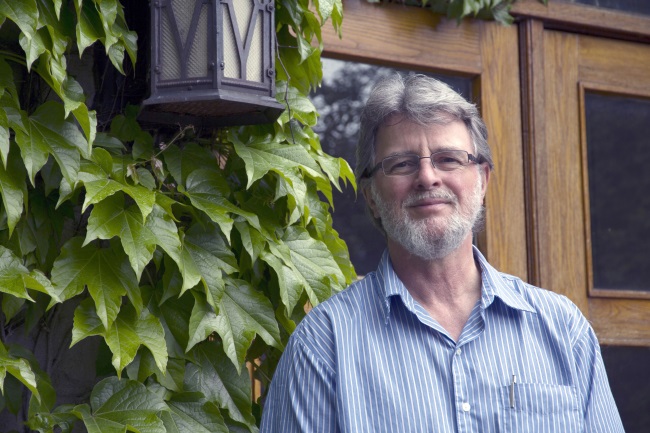QUIC director retiring
August 25, 2014
Share
 After more than 30 years as the director of the Queen’s University International Centre, Wayne Myles is retiring at the end of August. University Communications
After more than 30 years as the director of the Queen’s University International Centre, Wayne Myles is retiring at the end of August. University CommunicationsBy Andrew Carroll, Gazette editor
As with anything in the international spectrum, much has changed in recent years.
Heading into retirement after more than 30 years leading the Queen’s University International Centre (QUIC), Wayne Myles can attest to that when it comes to life on campus and abroad.
As the director of QUIC since 1982, Mr. Myles says that the main change he has witnessed is the sheer size of the international portfolio along with the need for awareness of other cultures. Canada is a much more multicultural country in 2014 and that is mirrored here on campus, with a greater number of new immigrants, international students and faculty, and students from diverse cultural backgrounds coming to Queen’s. There also are a growing number of Queen’s students and researchers travelling abroad for studies and research.
“The number of exchange students has exploded over the past two decades because it has become the vehicle in Canada for a lot of universities to become internationalized and so they sign bilateral agreements and they move into student exchanges,” Mr. Myles says, sitting in his office in the John Deutsch University Centre. “So the numbers used to be around 100 and now we’re up to 600 or more.”
There also has been an increase in international students attending Queen’s outside of exchanges and with the increase in numbers also comes a greater potential for cultural differences. Dealing with this has been a key area of study and skills development for QUIC. As Mr. Myles explains, the centre has been working for the past decade on developing “intercultural competence,” which refers to the building of the knowledge and skills that people have in dealing with differences both effectively and appropriately.
It’s not always easy because, as he points out, a lot of people are afraid of difference. The training has had a significant impact.
“You can try to engage someone who has a very different worldview but to do that well and do that in a way that is acceptable then I think that is a skill set that comes from experience or a combination of experience and book knowledge or developed skills,” Mr. Myles says. “So what we’ve been doing at the centre is focusing on assisting students and assisting staff to build the skills to work with the newcomers from abroad and to enable students going abroad to have a more successful experience.”
While many of those involved may not realize it, they are developing skills that will be very important in their professional lives as they meet people with a wide array of backgrounds, both within Canada and abroad.
Looking back on his time with QUIC, and the university, Mr. Myles says it’s the students who leave the most lasting impression.
“It’s a real privilege to work with students, the international students, and the trust and respect that they give you. Over the years I’ve seen so many of the students go through here and many of them have had significant challenges, problems – family problems from home, political problems, financial problems –and to see them succeed has been fabulous,” he says. “As a student service, being part of that is huge. I have had wonderful staff here. Working with people who are really out front with their feelings, willing to put together a set of skills to meet the needs of students is wonderful. They were very willing to press ahead on the things I thought were important.”
Mr. Myles officially retires at the end of August.